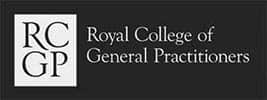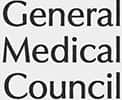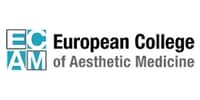
Published: 31 May 2024
Updated: 11 Feb 2025
People worldwide often travel to the UK to visit a cosmetic clinic in London. As one of the top providers of aesthetic treatments, we’ve had visitors from all parts of the globe. But why London? We have excellent facilities and some of the leading practitioners offering the latest treatments, products and aftercare.
Of course, beyond that, we have some of the greatest sites, restaurants, museums and historic places right on our doorstep. London is not the only place for what’s becoming known as beauty or medical tourism. Several other countries have earned recognition for offering top-notch cosmetic procedures at competitive prices. This blog explores the allure of beauty tourism in London and highlights some of the best countries for cosmetic surgery worldwide.
Harley Street Medical Doctors is found on the road between Buckingham Palace and Regent’s Park — Harley Street. It is a picturesque location filled with history and stunning architecture. As Bazaar has noted on our corner of the city:
“While Harley Street has long been considered the foremost destination for such injectable tweakments… An elite group of super clinics is revolutionising the way in which aesthetic treatments are approached.”
Harley Street is globally recognised for its medical excellence, particularly in cosmetic procedures. Our clinic is amongst expert beauty practitioners offering world-class cosmetic procedures. As a hub for some of the most renowned surgeons and aesthetic treatments in the field, we attract patients from all corners of the world.
Many people choose London as a place for treatment because it offers:
For many patients travelling to London, beauty tourism isn’t just about the procedure — it’s about the experience. London is a vibrant city, brimming with cultural attractions, world-class dining, and unparalleled shopping. After a procedure, patients can enjoy relaxing and exploring the city while recuperating in one of the world’s most exciting destinations.
Beauty tourism is a growing and global industry, with many people leaving their home countries for procedures. The reasons for choosing another country for cosmetic treatments can vary depending on what you want, where you go and what you’re paying. Let’s look at some of the most popular destinations.
Turkey has rapidly become one of the leading destinations for cosmetic surgery, particularly for patients from Europe, the Middle East, and the UK. The country is known for offering high-quality treatments at significantly lower costs than countries like the US or the UK. The city of Istanbul, in particular, has gained international recognition as a hub for medical tourism.
Thailand is one of the leading destinations for medical tourism, attracting patients from across the world for a wide range of cosmetic procedures. With its reputation for high standards of healthcare and affordable prices, Thailand has become a popular choice for surgery and less invasive aesthetic treatments.
Known as the epicentre of aesthetic surgery in Asia, South Korea has earned a reputation for its advanced cosmetic surgery techniques. With its signature style of “K-Beauty”, characterised by perfect skin and minimalist make-up, South Korea is uniquely popular for those seeking facial surgeries and beauty treatments.
Mexico is another popular destination for those seeking affordable cosmetic procedures without sacrificing quality. Its proximity to the United States has made it a go-to spot for many American patients. Cities like Tijuana, Monterrey, and Mexico City are known for offering world-class medical care at lower costs.
Brazil is one of the world’s most renowned destinations for body aesthetics. Known for its expertise in body shaping and breast surgeries, Brazil’s cosmetic surgeons are highly skilled, making it a preferred destination for local and international patients.
No matter where you travel for aesthetic treatments, check that facilities are licensed and accredited by the Joint Commission International (JCI) to ensure facilities meet international standards.
Membership of organisations such as the European Society of Plastic Surgery (EURAPS) or the International Society of Aesthetic Plastic Surgery (ISAPS) indicates adherence to rigorous international standards.
While many international aesthetic clinics offer world-class treatments, there are risks involved for Brits travelling abroad. Primarily, the alluring price difference means some might pick a less reputable or even unlicensed clinic because it offers the lowest price. This increases the chance of sanitary procedures not being followed, accidents occurring, and, ultimately, health complications for the patient.
A lot of cosmetic procedures also require recuperation and post-treatment checkups. When tourists book a short trip for cosmetic procedures, usually taking time off work, they can leave without the proper recovery time. This will cause serious complications down the line.
For instance, the British Association of Aesthetic Plastic Surgeons (BAAPS) reported in 2023 that the number of people requiring hospital treatment after cosmetic surgery abroad rose by 94% in three years. Another recent NHS Scotland case review looked at 81 patients over five years with complications due to cosmetic surgery tourism. The most common issues were wound dehiscence (49.4%) or wound infection (24.7%).
Harley Street MD combines medical expertise, personalised care, and advanced treatments in a world-renowned location. Our skilled practitioners deliver natural-looking results using the latest technology, all within a clinic that prioritises safety and comfort. Every step of the process is tailored to your needs, ensuring a personalised experience.
If you are looking for beauty treatments outside the UK, always be sure to check the following:
When choosing a clinic, look for accreditations, experienced professionals, and quality aftercare. Harley Street MD embodies these qualities, making us a trusted destination for patients travelling to London for beauty treatments.
Whether you’re a Londoner or planning to visit the UK, Harley Street offers world-class cosmetic treatments. Founded by Dr. Chia Tan, Harley Street MD in London is rated as Good by the CQC. Dr. Tan is an experienced aesthetic doctor and has authored multiple papers published in academic and medical journals and holds memberships with:
• The Royal College of Surgeons (RCS)
• The British College of Aesthetic Medicine (BCAM)
• Royal College of General Practitioners (MRCGP)
Our leading clinic is renowned for its safe practice and effective results, making it the perfect stop for a beauty holiday.
• British Association of Aesthetic Plastic Surgeons. BAAPS Cosmetic Tourism Update. 2023. From: BAAPS
• NHS Scotland: The cost of cosmetic surgery tourism complications to the NHS: A retrospective analysis. 2024. From: NIH







